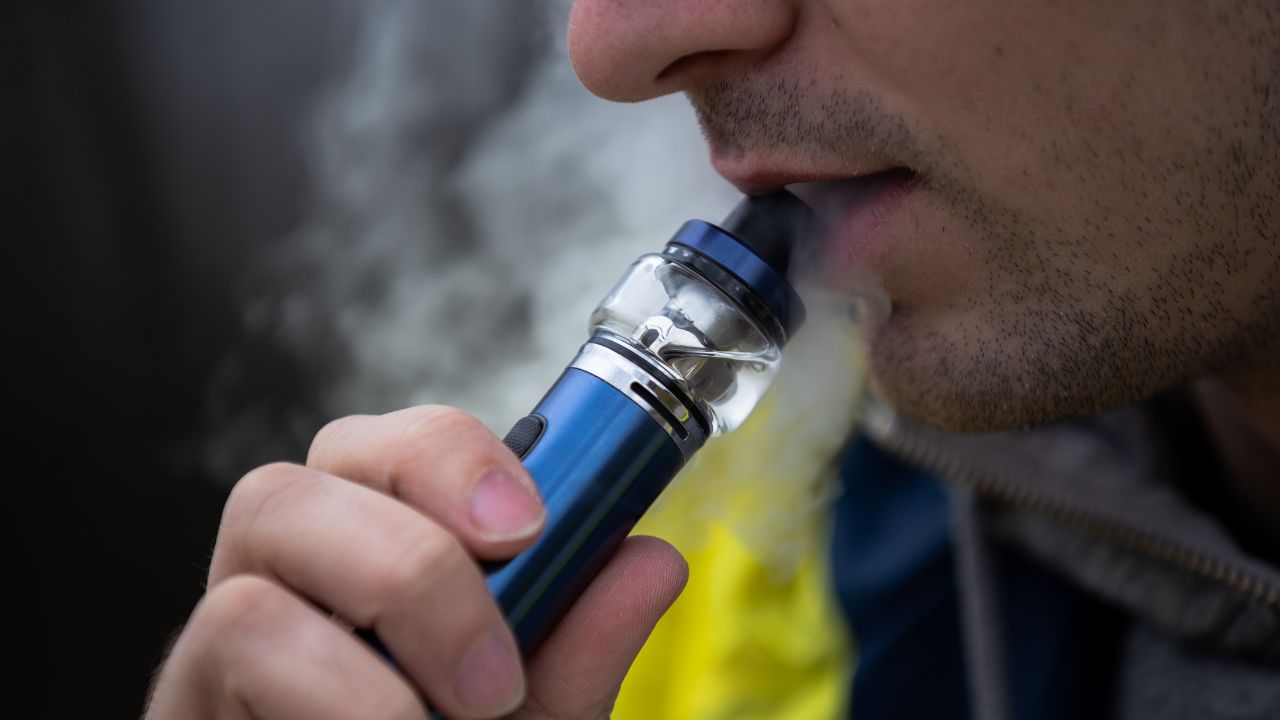In the United Kingdom, our government is progressive regarding vaping, and it is viewed (rightly so) as a smoking cessation product, not just in the UK but also in most of the EU, have this attitude. However, a recent data analysis reveals that this is different for other countries.
The data, conducted by MIST, reveals that only 20 countries allow vaping without any restriction, a far cry from the 180 that do not. The analysis also unveiled that there are 83 countries with restrictions (light and heavy), and surprisingly, there are 62 countries without any precise vaping regulation in place.
According to Fred Cassman, CEO of MIST UK, “Our data analysis sheds light on the global landscape of vaping laws, an area often filled with confusion and inconsistency. We regularly receive queries from our customers about where they are allowed to bring their vape on holiday, which underscores the need for clear information.”
"It's evident that vaping regulation is a complex issue with a wide spectrum of approaches across different countries," Cassman exclaimed.
Despite the diverse vaping laws worldwide, Cassman remains hopeful. “I anticipate a gradual move towards more standardised and balanced regulations as countries learn from each other's experiences and as further research informs policy decisions,” he added.
An interactive map was also produced (see above).


Countries That Do Not Allow Vaping
According to the data analysis, there are 35 countries where vaping is illegal. That list includes Taiwan, wherein you can receive an on-the-spot fine of up to £249 per offence.
Another country that has banned vaping is Mexico. Unlike in Taiwan, vaping can cost you up to £232. However, perhaps the strictest country is Thailand, where vapers are often fined up to £705 and can potentially face a 5-year prison sentence.
Here is the complete list of countries that do not allow vaping:
- Antigua and Barbuda
- Argentina
- Brazil
- Brunei
- Cambodia
- North Korea
- Ethiopia
- Ghana
- Hong Kong
- India
- Iraq
- Iran (Islamic Republic of Iran)
- Laos (Lao People's Democratic Republic)
- Lebanon
- Macau, SAR
- Mauritius
- Mexico
- Nepal
- Nicaragua
- Oman
- Palau
- Panama
- Qatar
- Seychelles
- Singapore
- Sri Lanka
- Suriname
- Syria (Syrian Arab Republic)
- Taiwan
- Thailand
- The Gambia
- Timor-Leste
- Tonga
- Turkmenistan
- Uganda
Countries That Allow Vaping
Many countries have adopted very liberal stances on vaping and have not - or are yet to - implement any restrictions or tight regulations on the sale and use of electronic cigarettes.
Malaysia, for instance, currently has no regulations on vape use. This is likely partly due to Malaysia’s booming vape industry.
Similarly, Kenya, Guatemala and the Dominican Republic have no legislation banning the sale or use of vape liquids and devices. The same can be said of Pakistan, though this is an interesting case that may reflect India’s stringent laws forbidding vape retailing and usage.
Here is the complete list of countries that allow vaping without restrictions:
- Afghanistan
- Algeria
- Andorra
- Angola
- Bangladesh
- Belize
- Botswana
- Dominican Republic
- Guatemala
- Indonesia
- Ireland
- Kenya
- Malaysia
- Marshall Islands
- Nigeria
- Pakistan
- Sudan
- Trinidad and Tobago
- Vietnam
- West Bank and Gaza
Countries That Allow Vaping But With Light Restrictions
Several territories have adopted a permissive attitude towards vaping with some light restrictions to ensure that nicotine products are only purchased and consumed by adults.
Slovenia is one such country, where surveys found that at least 1.48% of the adult population use vape devices, and vapes are only sold with health warnings placed on the packaging.
Canada allows those aged 18 or older to purchase vapes, though some territories have increased this to 19 and 21. Furthermore, all flavours are banned besides essential tobacco e-liquids. Vapers can also not vape within 20 metres of a school property or risk a minimum fine of $305.
Here is a list of countries that allow vaping but with light restrictions:
- Albania
- Egypt
- Armenia
- Austria
- Azerbaijan
- Barbados
- Belarus
- Belgium
- Bolivia
- Bulgaria
- Canada
- Chile
- Côte d'Ivoire
- Croatia
- Cyprus
- Czech Republic
- Denmark
- Ecuador
- El Salvador
- Estonia
- Fiji
- France
- Georgia
- Germany
- Greece
- Guyana
- Honduras
- Iceland
- Israel
- Italy
- Jamaica
- Japan
- Jordan
- Kazakhstan
- Kuwait
- Kyrgyz Republic
- Latvia
- Liechtenstein
- Luxembourg
- Maldives
- Malta
- Moldova
- Mongolia
- Morocco
- Netherlands
- Paraguay
- Philippines
- Poland
- Portugal
- South Korea
- Romania
- San Marino
- Senegal
- Slovak Republic
- Slovenia
- South Africa
- Spain
- Sweden
- Switzerland
- Togo
- Ukraine
- United Kingdom
- United States of America
- Zimbabwe
Countries That Allow Vaping But With Heavy Restrictions
Other countries have made efforts to permit vaping yet impose strict laws and limitations on aspects such as advertising, nicotine strengths, flavourings and packaging.
Despite being the world’s largest e-cigarette manufacturer, China is one such country. Retailers must apply for permits to sell vaping products, and they have imposed a 20mg nicotine strength limit on e-liquids produced for domestic consumption, though interestingly, these limits are not required for e-liquids intended for foreign export.
The Russian Federation has the same 20mg strength limit and will be implementing a ban on flavour additives at the beginning of September this year.
Hungary permits the use and sale of electronic cigarettes and e-liquids. However, it has imposed a strict ban on the sale, ownership and use of Elf Bar brand disposable vape devices, with vaping also banned in any public place that forbids cigarette smoking.
Here is a list of countries that allow vaping but with heavy restrictions:
- Australia
- Bosnia and Herzegovina
- Cape Verde
- China
- Colombia
- Costa Rica
- Finland
- Hungary
- Lithuania
- New Zealand
- Norway
- Russia
- Saudi Arabia
- Serbia
- Tajikistan
- The Bahamas
- Turkey
- United Arab Emirates
- Uruguay
Countries With Unclear Vaping Laws
The emergent technology of vaping has seen rapid developments in the past decade. As a result, several countries have yet to make a clear decision as to their attitudes towards vaping.
This can cause confusion, such as in the cases of Cuba and Venezuela. Neither country has issued any statements in support of or in opposition to vaping, which may be due to their respective histories of tobacco agriculture leading to a conflict of interest.
Uzbekistan has announced that regulation of vaping devices and products will come into effect in August of this year. However, the specific details of said regulation are as of yet unclear.
Methodology and Data
The data used in this study was drawn from hundreds of sources, including government websites, legal journals and vape industry bulletins. Care was taken to ensure the most accurate data was used when determining respective countries' attitudes and legislative efforts towards vaping.
Overall, legality was not the only metric considered but also factors such as nicotine limitations, advertising regulations, the severity of fines, and potential custodial sentences in national territories with strict laws forbidding vape manufacturing, sale and use.
Conclusion
It is clear from the findings above that there is no global consensus regarding vape legality. Legal and cultural attitudes towards vaping vary from country to country.
Most countries appear either supportive or at least ambivalent about vaping. Nevertheless, the attitudes of countries such as Thailand are so severe as to indicate they will not be softening soon.
On the other hand, many countries have indicated an interest in providing electronic cigarette devices through medical prescription, suggesting that many governments are optimistic about the potential for vaping to curb the likelihood of future generations engaging in tobacco smoking.



Leave a Reply